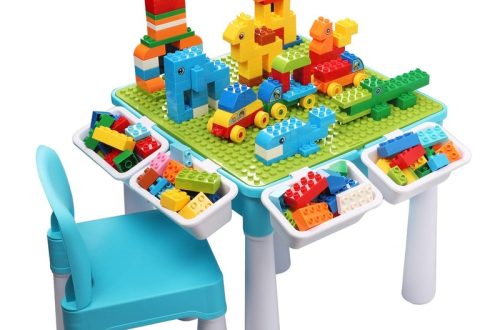Part 1: The Importance of Family Board Games
1. Bonding and Togetherness
Family game nights offer a wonderful opportunity to strengthen family bonds and create lasting memories. By setting aside dedicated time for shared activities, families can disconnect from technology and focus on each other. Board games provide a fun and engaging way to spend time together, fostering a sense of togetherness and camaraderie.
When families play board games, they can laugh, joke, and support one another. These shared experiences can help to build strong emotional connections and create a positive and supportive family environment. Additionally, board games can be a great way to introduce new family traditions and rituals, such as a weekly game night or a holiday game tournament.
2. Promoting Communication and Cooperation
Board games offer a unique opportunity to improve communication and cooperation skills. Many games require players to work together, negotiate, and compromise to achieve a common goal. This can help to strengthen family relationships and teach valuable social skills.
Furthermore, board games can stimulate critical thinking and problem-solving skills. As players navigate the game board and make strategic decisions, they are challenged to think creatively and find innovative solutions. This can enhance cognitive abilities and improve academic performance.
By incorporating board games into family life, parents can create a fun and educational environment that promotes positive social and emotional development.

Part 2: Criteria for Selecting Family Board Games
1. Age-Appropriateness: A Game for All Ages
A key factor in selecting a great family board game is ensuring that it’s suitable for players of all ages. The game should be easy to learn and understand, with simple rules that can be grasped quickly. It’s important to avoid games that are too complex or too childish, as this can lead to frustration and disengagement.
Some games offer multiple difficulty levels or age-appropriate variations, allowing players to adjust the game to their skill level. This flexibility can help to keep everyone engaged and having fun. Additionally, games with cooperative gameplay can be a great way to bring families together, as they encourage teamwork and collaboration.
2. Engaging and Inclusive Gameplay
A truly exceptional family board game should captivate players of all ages, offering an engaging and inclusive experience. The gameplay should be dynamic and exciting, with plenty of opportunities for strategic thinking, problem-solving, and decision-making. The game should also be visually appealing and have a strong theme that resonates with players of all ages.
It’s important to choose games that promote positive social interaction and encourage players to work together. Cooperative games, in particular, can foster a sense of teamwork and camaraderie. Additionally, games that offer a mix of luck and skill can appeal to a wider range of players, ensuring that everyone has a chance to win. By selecting a game that is both age-appropriate and engaging, you can create a fun and memorable family game night. Remember, the most important aspect of family game night is to spend quality time together and have fun.
Part 3: Top Enjoyable Family Board Games
1. Ticket to Ride: A Classic Choice
Ticket to Ride is a beloved board game that has captured the hearts of families worldwide. Its simple rules and strategic gameplay make it accessible to players of all ages. Players take on the role of railway tycoons, claiming routes across North America, Europe, or other regions. As players claim routes and complete destination tickets, they earn points and compete to become the ultimate railway baron.
Ticket to Ride offers a delightful blend of strategy and luck. Players must carefully plan their moves, considering the best routes to claim and the potential actions of their opponents. The game also encourages cooperation, as players may need to work together to complete shared routes. This balance of competition and collaboration makes Ticket to Ride a great choice for family game nights.

2. Codenames: A Wordy Adventure
Codenames is a captivating word game that challenges players to think creatively and communicate effectively. In this game, players are divided into two teams: the spymasters and the field operatives. The spymasters give one-word clues to their team, who must guess the words on the board.
Codenames is a fun and engaging game that promotes teamwork and communication. Players must work together to decipher clues, coordinate their efforts, and avoid guessing the wrong words. The game also encourages creative thinking, as players must think of clever and imaginative clues.
Part 4: The Benefits of Playing Family Board Games
1. Quality Family Time
Family game nights offer a delightful way to strengthen family bonds and create lasting memories. By setting aside dedicated time for shared activities, families can disconnect from technology and focus on each other. Board games provide a fun and engaging platform for communication, cooperation, and laughter. As families work together to achieve a common goal, they can develop important social and emotional skills. Board games can also stimulate critical thinking, problem-solving, and strategic planning, making them a valuable educational tool. Moreover, the shared experiences and laughter generated during game nights can help reduce stress and promote relaxation. By prioritizing family game nights, families can create a strong foundation of love, support, and togetherness.
2. Educational and Developmental Benefits
Beyond providing entertainment, board games offer a range of educational benefits for people of all ages. Many board games require players to think critically, solve problems, and make strategic decisions. These cognitive skills are essential for success in school and in life.
Board games can also help to improve social skills, such as communication, cooperation, and empathy. By working together to achieve a common goal, players can learn to negotiate, compromise, and resolve conflicts peacefully.
Furthermore, board games can help to develop patience, perseverance, and sportsmanship. As players navigate the challenges and setbacks of the game, they learn to persevere and maintain a positive attitude. This can help to build resilience and foster a growth mindset.

Part 5: How to Integrate Family Board Games into Family Activities
1. Schedule Regular Game Nights
One of the most effective ways to ensure that family game nights become a regular tradition is to schedule them consistently. By setting aside a specific time each week or month for game night, you can create a routine that everyone can look forward to. This helps to prioritize family time and reduces the likelihood of scheduling conflicts.
When scheduling game nights, it’s important to consider everyone’s availability and preferences. Choose a time that works for most family members, and be flexible if necessary. You may also want to consider rotating the time of day for game night to accommodate different schedules.
2. Rotate Game Choices
To keep family game nights engaging and exciting, it’s crucial to rotate the games you play. Encourage family members to suggest new games or revisit old favorites. This variety ensures that everyone has a chance to enjoy their preferred games and prevents boredom. Consider creating a game rotation schedule, where each family member takes turns choosing the game for the night. This collaborative approach involves everyone in the decision-making process, fostering a sense of ownership and anticipation. By rotating games, you’ll keep family game nights fresh and exciting, ensuring that they remain a cherished tradition for years to come.
In conclusion, family board games provide a fun and enriching experience for family members of all ages and offer numerous benefits, including bonding, communication, and cognitive development. By choosing the right games and incorporating them into family activities, families can create memorable and enjoyable experiences together.




